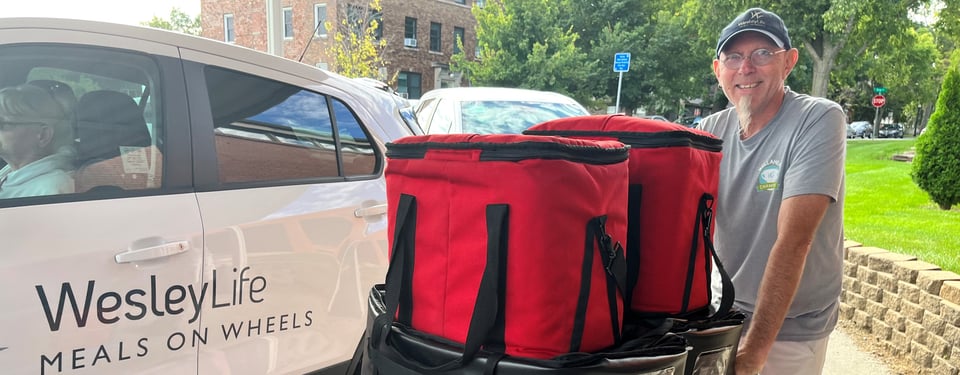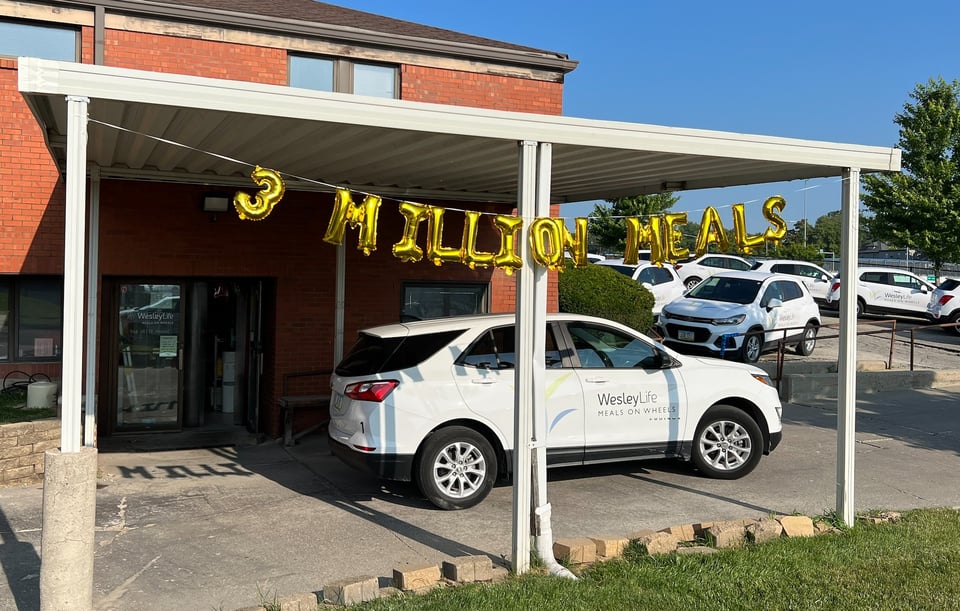
In the United States, July 26 is recognized annually as National Disability Independence Day, commemorating the signing of the Americans with Disabilities Act (ADA) into law in 1990.
The landmark legislation has served as a bill of rights for Americans with disabilities, assuring their access to opportunities that had not often been afforded to them. Its passage was a bipartisan effort to acknowledge discrimination suffered by the disability community and facilitate change in how people with disabilities were able to live their lives.
At WesleyLife, the anniversary of the ADA signing serves as a reminder of the ever-increasing importance of the organization's DEIB (diversity, equity, inclusion, and belonging) platform and its ongoing efforts to expand and enhance it.
"Focusing on this platform is so important because creating, maintaining, and enhancing a diverse and inclusive workplace culture has a positive impact on everything from employee recruitment and loyalty to innovation and performance," Tyler Meador, WesleyLife's director of talent acquisition, says.
"Being intentional about enhancing our diversity is quite honestly something we work toward daily, and the need for diversity includes the need to welcome people with a variety of strengths and abilities. Our individual differences make us stronger together."
Outreach is fundamental
WesleyLife works closely with area organizations that support people with disabilities to help ensure those individuals cross paths with WesleyLife and determine if any open positions are of interest, Tyler says.
"We partner with programs at high schools, vocational rehabilitation centers, and other organizations to understand how we can set up individuals with disabilities for success in the workplace and provide them with a sense of empowerment," Tyler says.
"Our locations, from our headquarters in Johnston to our WesleyLife at Home campus to all our communities, have done a fantastic job of helping to find roles for these individuals and making their experiences positive ones."
"Never be any barriers"
One of those communities is Wesley on Grand in Des Moines, where executive director Damon Buskohl is committed to the addition and inclusion of team members with diverse abilities. Having grown up with a beloved older sister who lived with cerebral palsy, Damon learned first-hand that having a physical disability does not preclude capability.
"My sister, who is 58 now, is my hero, and if someone comes into the community who uses a wheelchair as she does, for example, there is no part of me that questions whether the person is capable," Damon says. "We'll work with the individual to determine the need for any accommodations that would help them be successful, but here, there will never be any barriers for them."
Tyler says examples of team members with disabilities are available in any and all WesleyLife communities, and that those examples often involve high school students who job-shadow team members in various roles to determine if those roles might be right for them one day.
Intergenerational connections
"We've had a couple students in wheelchairs working in a community with residents who are living with dementia, and not only does that create opportunities for people with different abilities to work side-by-side, but it provides opportunities for intergenerational connection that are so important to us as an organization," Tyler says.
"An experience like that can help young people look an older person differently. If a student works with an older person and connects with them, she is likely to leave this experience with a different perception of aging."
Tyler says above all, WesleyLife strives to continue to dispel stereotypes and stigmas, and to ensure everyone feels safe, secure, and included in any WesleyLife workplace.
"We live in a time, thankfully, when the stigmas around disability aren't quite as prevalent as they used to be, but they're still there," Tyler says. "It's our duty to lead by example and help reduce any stigma that might remain, and we'll continue to be increasingly intentional to try to make that happen."



